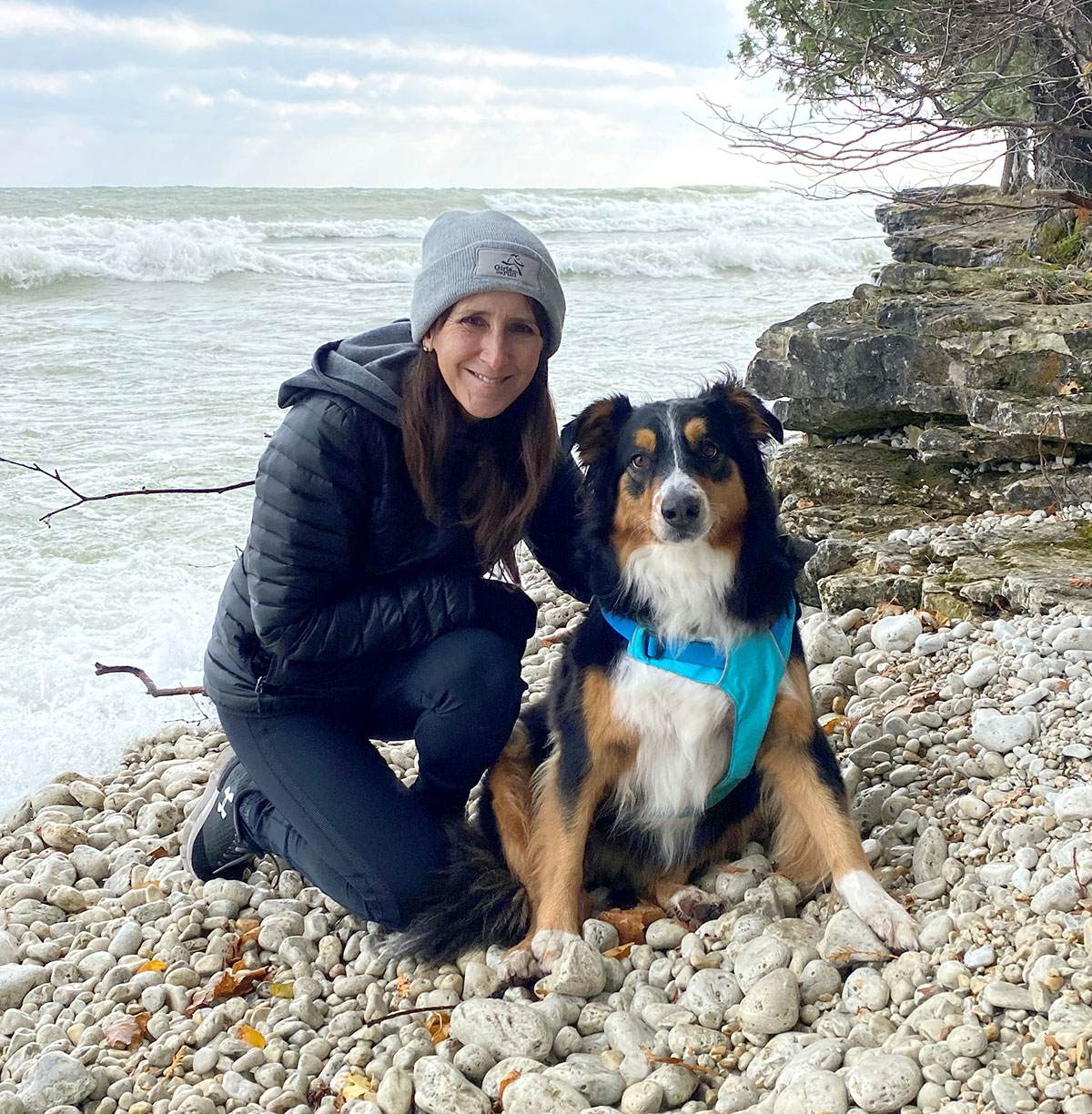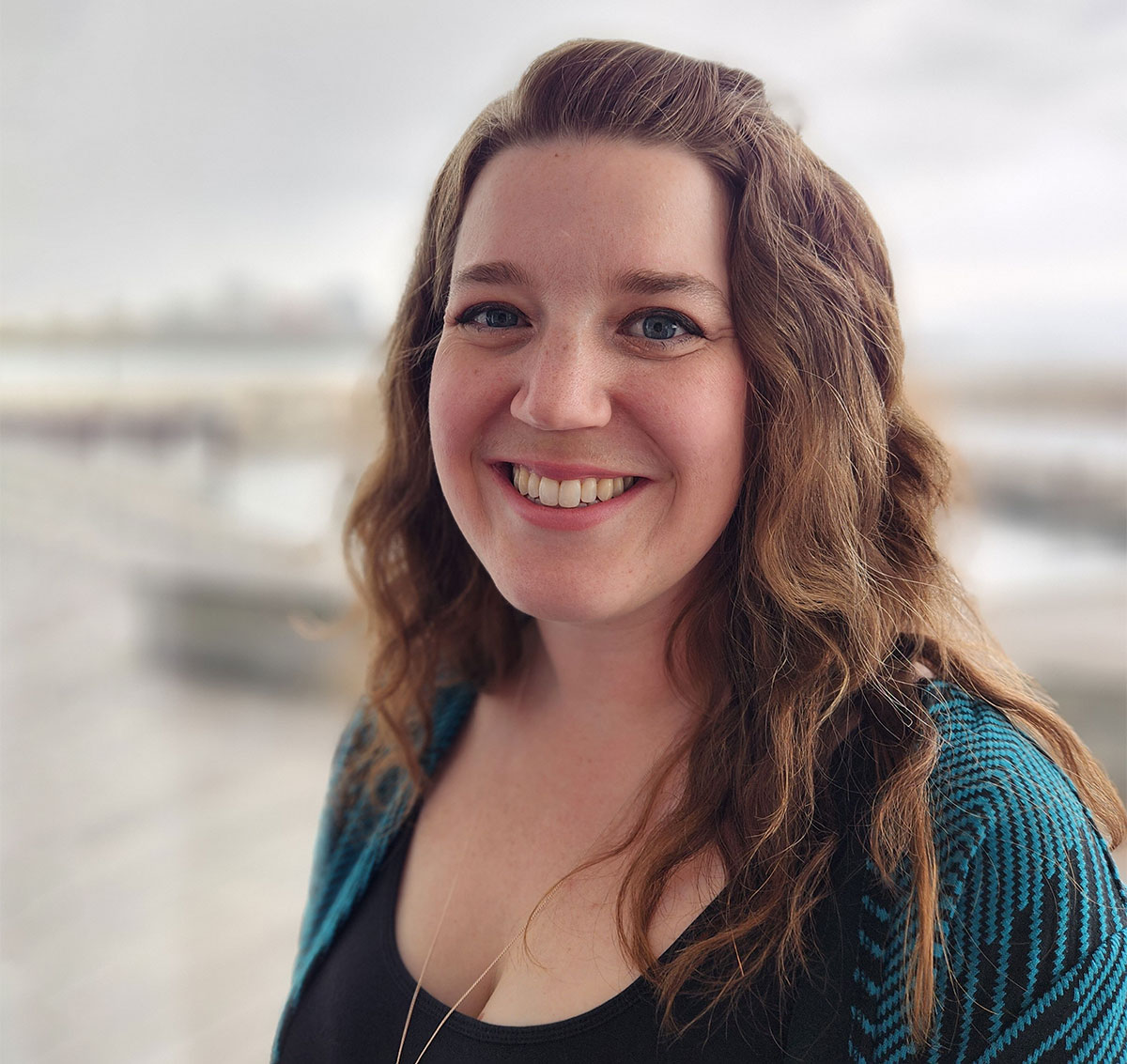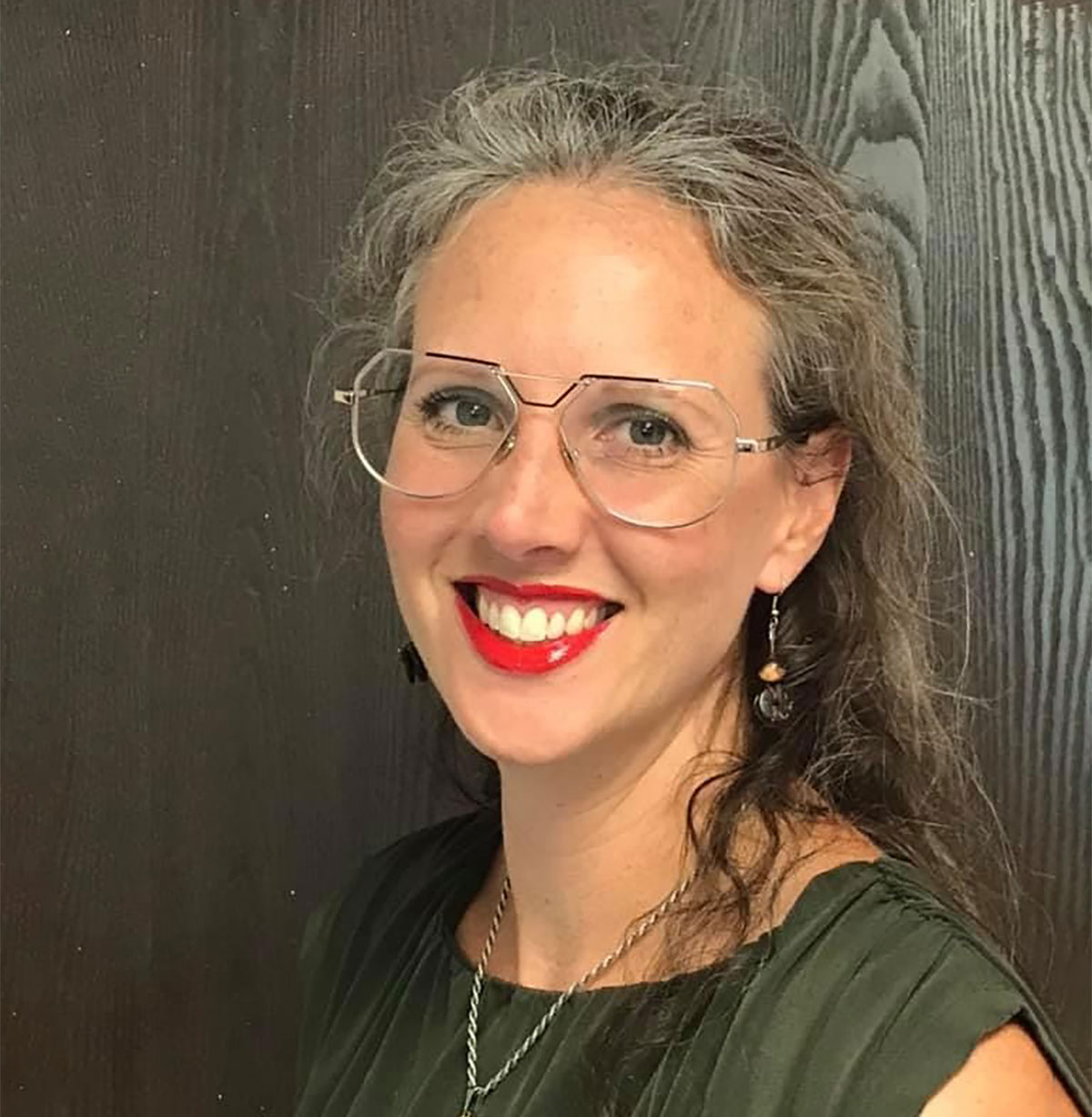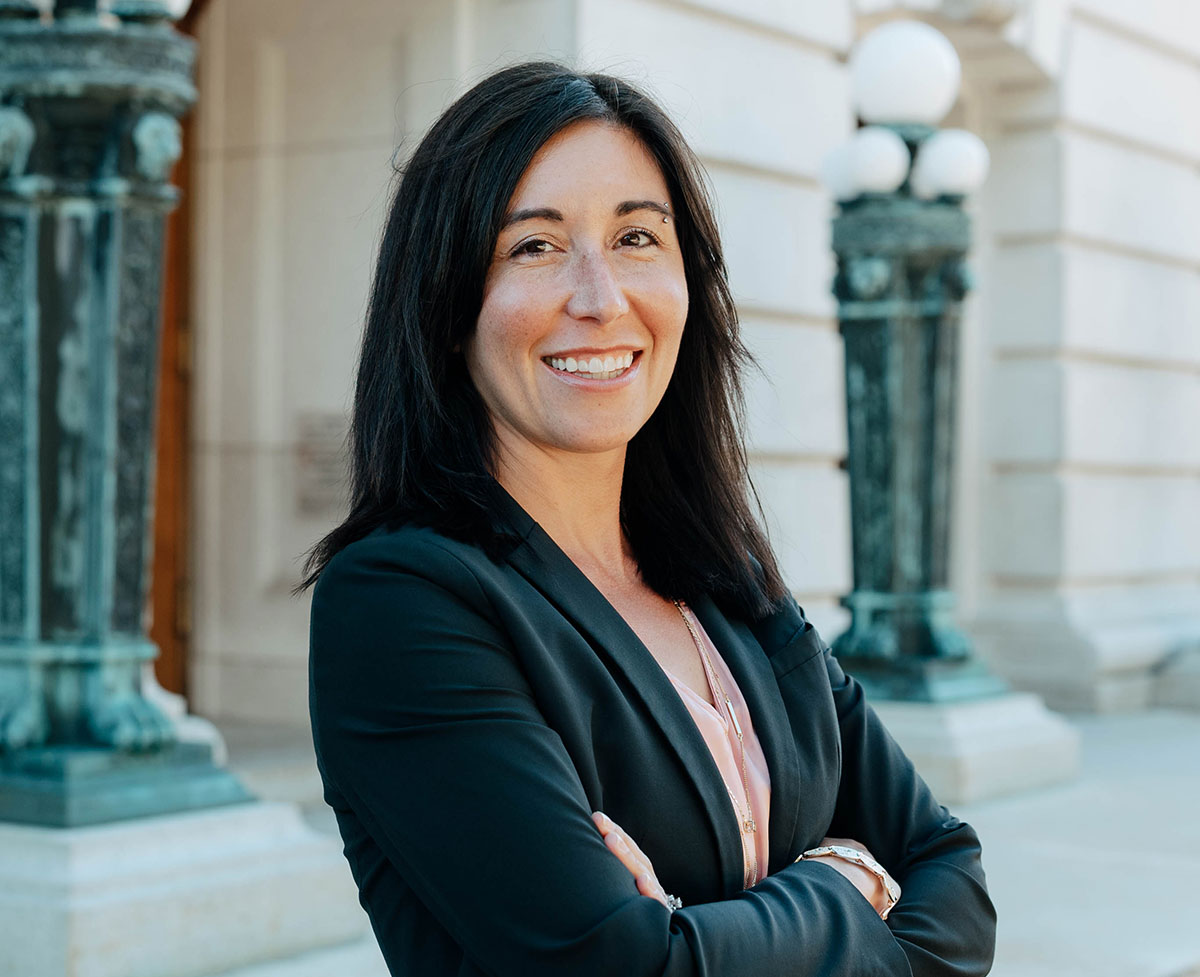
May 3, 2023 – Stress and burnout have long plagued legal professionals.
Consider Herman Melville’s “Bartleby, The Scrivener.” After a period churning out scads of top-notch work – sometimes by candlelight – the title character in Melville’s short story responds to an assignment from his lawyer supervisor with the following words: “I would prefer not to.”
It becomes a refrain for Bartleby. He’s later arrested for vagrancy and dies in jail of starvation, having preferred not to eat.
Today, lawyer well-being is more important than ever – technology and the pandemic are only two of the forces threatening lawyer well-being that have intensified since Melville’s story was published in 1856.
In this article, four attorneys who volunteer with the
State Bar’s Wisconsin Lawyer Assistance Program (WisLAP) share their tips for staying well.

Julie Spoke, deputy director of intake for the Office of Lawyer Regulation.
Morning Routine
Watching a relative struggle with a debilitating mental illness made a lasting impression on Julie Spoke.
“Taking care of myself has always been important to me,” said Spoke, deputy director of intake for the Office of Lawyer Regulation (OLR).
Spoke said she became a WisLAP volunteer to help her fellow attorneys.
“I’m a huge runner, and physical activity and eating healthy and taking care of myself are really important to me,” Spoke said. “I see a lot of attorneys in Wisconsin who are struggling, so I wanted to join WisLAP and help.”
Spoke said that many of the WisLAP calls she receives are from solo practitioners, with family law and criminal law the predominant practice areas.
“I see a lot of attorneys who are overworked and stressed,” Spoke said. “We get a lot of diligence and communications issue that come into our office because attorneys are taking on way too many cases. They can’t keep up with communications with their clients, they can’t keep up with their cases. They’re just overloaded with work.”
Spoke said that sticking to a morning routine is the key to her wellness.
Most mornings, Spoke said, she rises with her husband, a dairy farmer, at 4:40 a.m. She gets in a run or some other exercise, meditates, and listens to a podcast or reads.

Rose Simon-Silva, an attorney who works for the Village of Menominee Falls, has been on both sides of a WisLAP phone call.
‘We’re Supposed to Have All The Answers’
Rose Simon-Silva said that volunteering with WisLAP is important because most therapists don’t understand legal ethics obligations and the pressure they place on attorneys.
“They don’t understand your job,” Simon-Silva said. “You’re like, ‘I can’t not respond to that timeline. That’s not an option – that’s malpractice.”
Simon-Silva, an attorney who works for the Village of Menominee Falls, has been on both sides of a WisLAP phone call. After serving as a peer support volunteer, she called the service herself.
“I had this sort of moment where I’m like, ‘Why am I not using this service?’” Simon-Silva said. “I want to help others, but I won’t seek help myself?”
Need a Little Well-Being Guidance? WisLAP is your team.
The
Wisconsin Lawyers Assistance Program (WisLAP) provides confidential well-being consultations to lawyers, judges, and law students. WisLAP staff are trained in the areas of mental wellness, substance use disorders and self-care best practices.
Email the WisLAP team at
callwislap@wisbar.org
“I had a peer support person for a couple of phone calls, and it really helped me. I think having it from that side of things made me better at helping people I’ve worked with through WisLAP.”
According to Simon-Silva, many attorneys are too hard on themselves.
“We’re supposed to have all the answers, and we don’t,” Simon-Silva said. “Sometimes you place unrealistic expectations on yourself instead of saying, ‘Hey this isn’t a big deal, I can call WisLAP and talk to somebody and feel better.’”
To boost her well-being, Simon-Silva fits in exercise when she can.
“I have three little boys,” Simon-Silva said. “After I put them to bed, I sometimes walk circles in my driveway. It’s better than nothing.”
She also sets aside time each Sunday night for a mental health check-in and relies upon a group chat for support from other municipal attorneys.
Simon-Silva encourages attorneys struggling with wellbeing to call WisLAP.
Calls are confidential, she said, and WisLAP boasts a roster of diverse and caring volunteers.
“It’s good to have a sounding board and good to have somebody to tell you that what you’re feeling is normal, and that you’re not alone,” Simon-Silva said.

Aurelia Schultz works a demanding job as a trade negotiator for the federal government.
‘It’s Not the End of the Road’
Aurelia Schultz decided to volunteer with WisLAP after finally finding a way to manage her posttraumatic stress disorder.
“I can function most of the time,” Schultz said. “But just knowing how that can affect attorneys, especially if they’re struggling with it on their own, I just thought the WisLAP program was a great way to let them know that it’s not the end of the road.
 Jeff M. Brown, Willamette Univ. School of Law 1997, is a legal writer for the State Bar of Wisconsin, Madison. He can be reached by email or by phone at (608) 250-6126.
Jeff M. Brown, Willamette Univ. School of Law 1997, is a legal writer for the State Bar of Wisconsin, Madison. He can be reached by email or by phone at (608) 250-6126.
“It’s just something to work through and others have done it and there are ways to get through things when things seem really tough.”
Schultz works a demanding job as a trade negotiator for the federal government. She manages the stress by identifying those places where she has choices about how to approach her work.
“Being able to step back and say, ‘Wait a minute – it feels like everything is crashing down and I need to do 800 things, but I get to choose what to do, and I have choices as to how to go about it,’ Schultz said. “Sometimes just recognizing that allows you to take the first step,” Schultz said.
Schultz said that drawing boundaries is also important. For instance, Schultz, a churchgoer, decided she wasn’t going to do work on Sundays.
“Every once in a while, something comes up where that needs to be changed, but at least that’s my baseline,” Schultz said.
Schultz said she relies on her faith to keep the big picture in view.
“I remember that God’s in control and that there are so many other things going on in the world. Having things around that remind me that what I’m doing is just a little piece of everything and that the world’s not going to end if I mess this up kind of relieves the pressure,” Schultz said.
She recently placed Post-it notes on each of the manila file folders in her office, each one containing a Bible verse or an inspirational saying.
Schutlz said that keeping others in mind helps her push back against the self-imposed pressure of unrealistic deadlines.
“I try to keep in focus what it means for the next person down the line,” Schultz said. “Instead of ‘Can I get this off my desk,’ I ask, ‘What does sending this on now instead of Monday mean for the next person who needs to pick it up?’”

Danielle Schroder, a partner at Hawks Quindel.
‘It Was a Huge Wake-up Call’
In the fall of 2021, Danielle Schroder hit a wall.
Schroder, a partner at Hawks Quindel, was busy juggling work, caring for a newborn, and helping her other two young children grapple with virtual learning.
It was too much, and Schroder took a leave of absence from the firm.
“It was a huge wake-up call that despite being a mom of three children and having a busy practice, I’ve got to take care of myself and that means I can’t do it all,” Schroder said. “That means I put myself before my clients and my kids at times, because I can’t give to them unless I take care of myself.”
Schroder got help and returned to work. She became a WisLAP volunteer at the suggestion of Nick Fairweather, also a partner at Hawks Quindel.
The key to Schroder’s self-care routine is getting enough sleep.
“I take care of myself by making sure I go to bed early, even when there are deadlines and things lingering … I trust that they’ll be there tomorrow. I have to go to bed or I won’t like where I find myself.”
Schroder said that the advent of work-from-home during the pandemic posed a real threat to work-life balance.
“During COVID, it was easy to blur the lines between working and doing household activities and going back and forth between the two, and that meant that I could stay up late and try to get work done at home, and that was not a good thing for me,” Schroder said.
Schroder said that unrealistic expectations are a bugbear for attorneys.
“As a lawyer, we want to solve problems, seek justice, take care of our clients, put on that cape and there is an expectation that we do so, and that can lead to burnout.”
Schroder said that her well-being begins with her; she cited taking responsibility for pushing herself too hard as an example. But it doesn’t end with her, Schroder said.
“I had to reach out to a lot of supports to be able to get out of that dark place,” Schroder said. “So, although I can take the first step to ask for help or change my behavior, I can’t do it alone. I had to get help from coaches and friends and a whole community to get back to a healthy place.”
